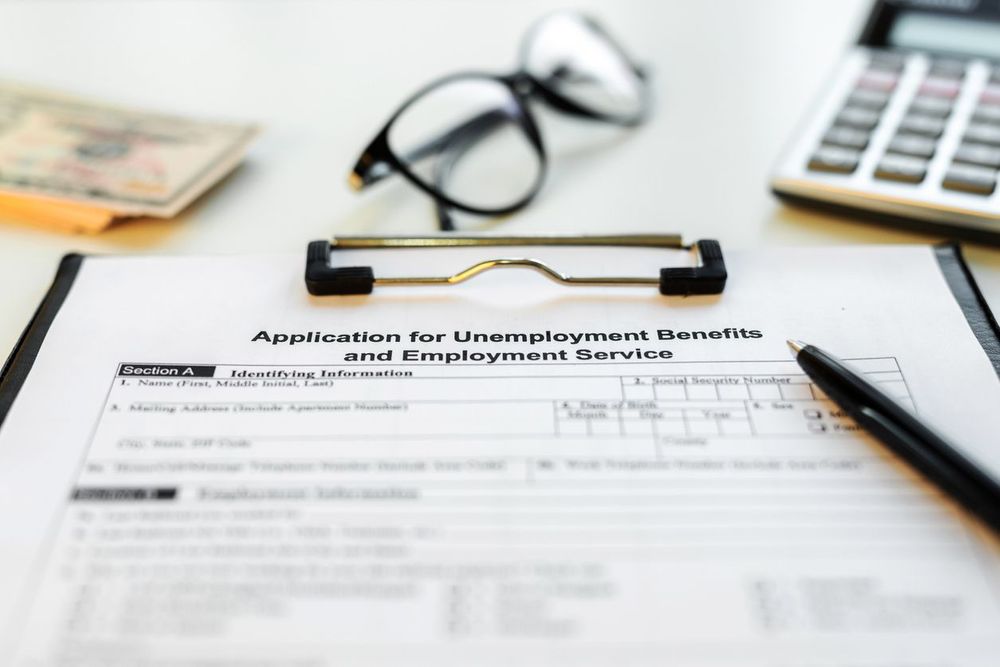
When someone loses their job, they often struggle to make ends meet. Unemployment benefits is a government-sponsored program designed to provide financial assistance to individuals who lost their job for a reason that was beyond their control. However, not everyone is eligible for the program. In some cases, the government denies the application for benefits. If this happens to you, there's a chance you can appeal the decision and qualify for benefits.
Every state has its own unemployment program but must comply with federal guidelines. Therefore, you need to research your state's benefits to determine the specifics of the benefits.
As a general rule, the number of benefits, length of benefits, and eligibility requirements vary by state. The one requirement that remains the same is that you must be unemployed or underemployed to qualify. And, as previously mentioned, your situation must be a result of an issue beyond your control.
If you believe that you're eligible for unemployment, check the qualifications in your state. In addition to being unemployed, you may need to have worked for a certain length of time and have earned a certain amount of money.
Before going through the application process, make sure you qualify. When you apply, you need to provide information about your previous employers and your reason for being unemployed. Depending on your location, you may be able to file online. You might need to mail in the application, though.
You should be truthful in your application, or you risk serious consequences. If the government finds that you falsified the documents or lied, you will need to repay them in full.
After you file your application, someone will evaluate it and decide whether or not you're eligible for benefits. If you receive a letter of denial, you have the option to appeal. First, you should understand why you were denied. Here are a few common reasons for denials:
You left work without a good reason
They fired you for misconduct or inappropriate workplace behavior
You were unavailable to work or unable to keep your job
Refusing to accept employment offers
You made inaccurate statements on your application
In rare cases, the office overpays you. This could happen for several reasons, such as:
A former employer makes an appeal, and the office changes their decision and denies benefits
You received a payment while an employer appeal was pending
The application contained inaccurate information, and the accurate information would either result in a denial or a decrease of benefits
You failed to update the government with information regarding changes in your employment status
In any case, you may be responsible for paying back the benefits you received. To prevent this from happening, you should be careful when you fill out your application. Don't estimate numbers or falsify information. Additionally, be ready to defend yourself if an employer appeals your request for benefits.
If the government denies your request for benefits or gives you fewer benefits than you deserve, you're not at the end of the road. You have an option to appeal the decision. At times, the office denies an appeal that should have been approved or underpays applicants. Everyone makes mistakes, and it's up to you to fight for a fair decision.
Usually, people file appeals for one of several reasons. For instance, you may have been denied when you actually are eligible for benefits. An appeal could reverse the decision and get you the benefits you're entitled to. Similarly, the agency might claim that you wer3 overpaid benefits. Once again, you can appeal the decision and fight to keep the benefit money.
Just as the unemployment eligibility requirements vary by state, so does the appeal process. Before you begin an appeal, look into your state processes and requirements. One of the most important details is the time frame. Typically, you only have a certain period of time to file an appeal. Filing beyond that point won't do you any good.
There are several ways in which you can file your appeal, depending on your location. In most states, you have the option to file an appeal over the phone, in writing, or in the office. You may also be able to file it online. However you file, you will need to complete appeal paperwork that includes personal information. You'll need to include your name, social security number, and an explanation of your appeal.
After you submit the paperwork, someone will review your appeal. They then make a decision and send it to you in writing. If the situation involves a disgruntled previous employer, you may need to attend a hearing. The office of appeals is responsible for scheduling a time and date for your hearing. During the hearing, a judge gives the employee and the employer opportunities to display evidence and build their cases.
Once the hearing is over, the judge makes a written decision and sends it to all of the hearing's participants.
If you were laid off from your job, you should seek unemployment benefits. But don't make the mistake of thinking that the benefits are intended to sustain you. Unemployment benefits are a way to sustain you while you look for a new job. In fact, one of the requirements of unemployment benefits is that you actively seek employment.
You need to document your job search. In most states, you need to apply for a certain number of jobs each month. While you can only do so much to get a job offer, you can make sure you're actively looking for a new job. As you search for work, be on the look. By having more time to search for work, you can ensure your new job is one you enjoy. You may be able to get on the right career path for a successful future.
Lorem Ipsum is simply dummy text of the printing and typesetting industry. Lorem Ipsum has been.
